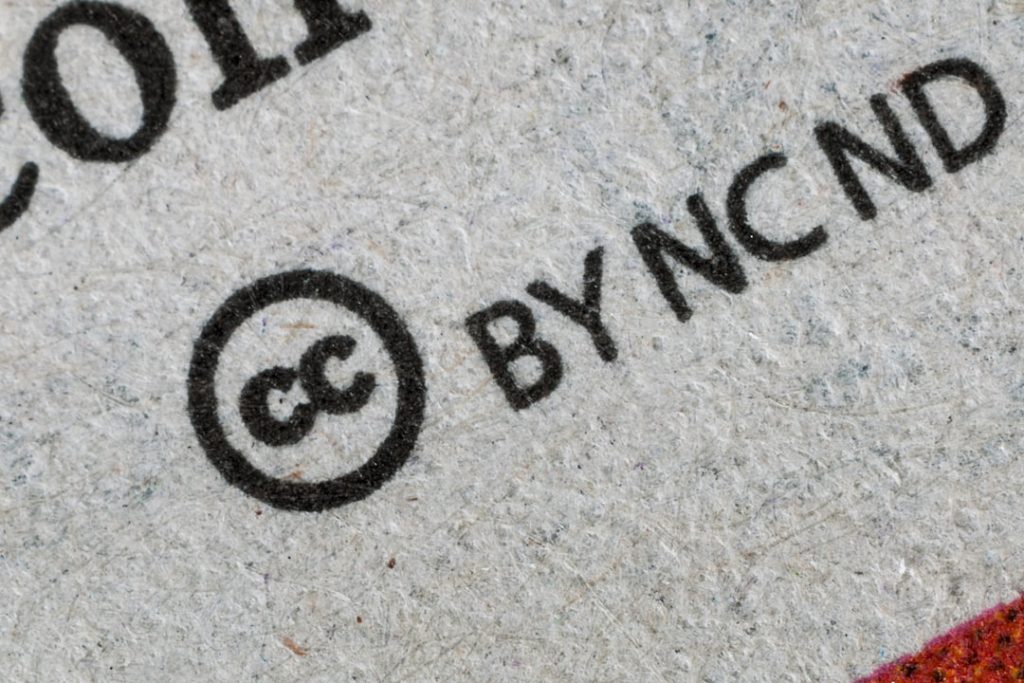WordPress Insights
Expert Tips & Tricks

Develop and Submit Free WordPress Plugins to Validate your Idea
Developing and submitting free plugins for WordPress plugin to WP.org isn’t just about giving back to the community—it’s a powerful strategy for growing your brand, establishing authority, and attracting potential customers. At Developry, we help developers and businesses create high-quality plugins and successfully submit them to the official WordPress Plugin Repository. Why Submit a Free … Read more

Hire a Developer for WordPress Plugin
Hire a developer for WordPress plugin to ensure your project meets coding standards, security best practices, and WP.org guidelines. A professional developer saves you time, optimizes performance, and increases the chances of approval without unnecessary delays. Why should I hire a developer instead of building a WordPress plugin myself? Developing a WordPress plugin requires expertise … Read more

Creating Premium Versions of Free WordPress Plugins
WordPress plugins are integral to enhancing website functionality, and the demand for versatile plugins continues to grow. If you’re a developer offering free plugins, upgrading them into premium WordPress plugins is a strategic way to monetize your work and add value for your users. This guide will explore the steps, strategies, and best practices to … Read more

Custom WordPress Plugins: Build Plugins for Client Needs
In today’s digital landscape, WordPress powers over 40% of websites, making it a leading platform for businesses and developers. While WordPress offers thousands of plugins to enhance functionality, some client needs require unique solutions. Developing custom WordPress plugins allows you to deliver tailored features and meet specific business goals. This guide explores the process, tools, … Read more

Maintain Custom Plugins: Best Practices for Updates and Support
Custom plugins are essential for extending WordPress functionality and meeting specific business needs. However, building a plugin is only part of the journey; ongoing maintenance is crucial to ensure it remains secure, compatible, and functional. Learning how to effectively maintain custom plugins allows you to provide better service to clients, protect your plugin’s integrity, and … Read more

Sell WordPress Plugins: Complete Guide for Developers
The WordPress ecosystem offers vast opportunities for developers to monetize their skills. If you’ve developed a useful plugin, selling it to a global audience is a great way to generate revenue and contribute to the WordPress community. Learning how to sell WordPress plugins effectively requires a strategic approach, from development and pricing to marketing and … Read more

WordPress Plugin Licensing: Subscription Models Explained
As WordPress continues to dominate the web development space, plugins have become an essential tool for adding functionality and enhancing user experience. For developers, understanding WordPress plugin licensing is crucial to managing sales, protecting intellectual property, and generating consistent revenue. Subscription models, in particular, are a popular way to monetize plugins, offering recurring income and … Read more

Automated Tests WordPress Plugins: Setup Guide for Developers
Developing WordPress plugins involves creating code that not only works but remains functional and secure over time. Manual testing can be tedious, time-consuming, and prone to human error, especially as your plugin grows in complexity. Implementing automated tests WordPress Plugins is a game-changer, allowing developers to verify functionality, identify bugs, and ensure code quality efficiently. … Read more

Debug WordPress Plugins: Fix Common Development Issues
Developing WordPress plugins is an exciting process, but encountering bugs and issues is inevitable. Whether you’re troubleshooting unexpected errors, addressing compatibility concerns, or optimizing performance, knowing how to debug WordPress plugins is a crucial skill for every developer. A structured approach to debugging not only saves time but also ensures your plugins are secure, efficient, … Read more

Custom Plugins WooCommerce: Guide to Development for Stores
WooCommerce powers millions of online stores, offering flexibility and scalability to businesses of all sizes. However, store owners often need unique functionalities that go beyond the standard WooCommerce features. This is where custom plugins WooCommerce come into play. By developing custom plugins, developers can tailor online stores to meet specific business requirements, enhance user experience, … Read more

Local Development Environment: Set Up for WordPress Plugins
Developing WordPress plugins is a rewarding process, but testing and debugging changes directly on a live website is risky. Setting up a local development environment allows developers to build and test plugins safely and efficiently. This environment mimics a live WordPress site on your computer, providing a controlled space to experiment with code, troubleshoot issues, … Read more

WordPress Plugin Standards: Coding Guidelines for Developers
Creating robust and efficient WordPress plugins requires adherence to established coding standards. Following WordPress plugin standards ensures your code is clean, secure, and maintainable. It also helps maintain compatibility with WordPress core updates and other plugins. Whether you’re a seasoned developer or just starting with WordPress plugin development, adopting these standards is crucial to success. … Read more

Create Basic WordPress Plugin: Step-by-Step Tutorial
WordPress plugins are essential for enhancing website functionality without modifying core files. Whether you’re a seasoned developer or just starting out, learning to create basic WordPress plugin is a valuable skill. With this tutorial, you’ll build a simple plugin while understanding the fundamentals of plugin development. This guide covers everything from setting up your environment … Read more

Sanitize Validate User Inputs: Plugin Development Guide
Security is paramount in WordPress plugin development, and handling user inputs safely is a critical aspect of building secure and reliable plugins. Improperly processed inputs can expose websites to vulnerabilities like cross-site scripting (XSS), SQL injection, or data corruption. Learning how to sanitize validate user inputs is essential for ensuring data integrity and protecting WordPress … Read more

Optimize Database Queries in WordPress Plugins
WordPress is a powerful and versatile platform, but poorly optimized database queries in plugins can slow down your website and negatively impact user experience. Developers must ensure that their plugins handle database operations efficiently to maintain optimal performance and scalability. Knowing how to optimize database queries in WordPress plugins can significantly improve your site’s speed … Read more

Integrate Third-Party APIs into WordPress Plugins
In today’s interconnected web environment, third-party APIs are essential tools for extending functionality and enhancing user experience. Integrating these APIs into your WordPress plugins can enable advanced features, such as real-time data updates, external service connections, and seamless integrations with platforms like Google, Stripe, or Mailchimp. Knowing how to integrate third-party APIs effectively ensures your … Read more

Customizing WooCommerce Features via Plugins
WooCommerce is one of the most popular eCommerce platforms, offering a robust set of features to help businesses build and manage their online stores. However, no two businesses are the same, and many store owners need additional functionality tailored to their specific needs. This is where customizing WooCommerce features via plugins comes into play. In … Read more

WordPress Hooks in Plugin Development: Actions and Filters
WordPress hooks are an essential feature of the platform that allows developers to modify or extend its functionality without altering the core files. Understanding and effectively utilizing WordPress hooks in plugin development is key to creating flexible, maintainable, and feature-rich plugins. This guide explores the two main types of WordPress hooks—actions and filters—how they work, … Read more

AJAX Functionality in Plugins for Dynamic Behavior
In the world of modern web development, interactivity and responsiveness are critical for providing a seamless user experience. AJAX (Asynchronous JavaScript and XML) is a powerful tool for creating dynamic behavior without requiring full-page reloads. For WordPress developers, understanding how to implement AJAX functionality in plugins can take plugin development to the next level, enabling … Read more

Securing WordPress Plugins: Best Practices for Plugin Safety
WordPress plugins add powerful functionality to websites, but without proper security measures, they can also create vulnerabilities that expose your site to attacks. Understanding and implementing best practices for securing WordPress plugins is essential for developers and site owners to ensure a safe and reliable web environment. This guide explores the common threats plugins face, … Read more

WordPress Plugin Security Vulnerabilities and How to Avoid Them
WordPress plugins add tremendous functionality and flexibility to websites, but they can also introduce security vulnerabilities if not developed or maintained properly. Hackers frequently target plugins to exploit weaknesses, gain unauthorized access, or disrupt operations. Understanding WordPress plugin security vulnerabilities and implementing strategies to mitigate them is critical for protecting your website. This guide explores … Read more

Reducing Plugin Load Times for Better Website Performance
WordPress plugins add incredible functionality to websites, but they can also slow down load times if not optimized properly. Slow websites can lead to higher bounce rates, poor user experience, and reduced SEO rankings. Therefore, reducing plugin load times is crucial for achieving better website performance while maintaining essential features. This guide covers strategies to … Read more

Optimizing WordPress Plugins for Performance
WordPress plugins are essential for adding functionality and enhancing user experience, but they can also impact website performance if not optimized correctly. Slow-loading plugins can lead to higher bounce rates, poor user experiences, and lower search engine rankings. Understanding the importance of optimizing WordPress plugins is crucial for maintaining a fast and reliable website. This … Read more

Translating Multilingual Plugins: Tools and Tips
Creating a multilingual WordPress website is a game-changer for reaching a global audience. To make this possible, plugins must support multiple languages. For developers, translating multilingual plugins is essential to provide inclusive functionality and broaden their user base. This guide explores tools, best practices, and tips for effectively translating WordPress plugins to support multiple languages. … Read more

Quality WordPress Plugin Development Guide
Creating a WordPress plugin requires more than just adding functionality to a website. For a plugin to succeed, it must be well-coded, secure, and user-friendly. Adopting best practices for quality WordPress plugin development ensures your plugin performs efficiently and integrates seamlessly with the WordPress ecosystem. This guide covers the essential steps, tools, and strategies for … Read more

Localizing WordPress Plugins: Best Practices
WordPress powers websites across the globe, making multilingual support an essential feature for plugins. Localizing plugins ensures they are accessible to users in different languages and regions, enhancing usability and increasing adoption. For developers, localizing WordPress plugins is a crucial step in creating inclusive tools for the diverse WordPress community. This guide covers the importance … Read more

WooCommerce Payment Integrations Guide
Setting up a seamless payment system is critical for the success of any eCommerce store. WooCommerce, one of the most popular WordPress plugins for online stores, provides flexible payment integration options to cater to a wide range of business needs. From global payment gateways to localized solutions, WooCommerce payment integrations allow store owners to securely … Read more

Custom Post Types Plugins: Development Guide
Custom post types are one of the most powerful features of WordPress, allowing developers to create specialized content types beyond the default posts and pages. When packaged into plugins, custom post types become a flexible and reusable solution for adding unique content structures to WordPress websites. This guide covers everything you need to know about … Read more

Custom APIs for Plugins: Development Guide
Custom APIs are powerful tools that allow WordPress plugins to communicate with external services or provide unique functionality within a website. By developing custom APIs for plugins, you can enhance interactivity, integrate third-party tools, or enable data sharing between applications. This guide will walk you through the basics of creating and implementing APIs in plugins, … Read more

REST API Plugins Development Guide
REST APIs have revolutionized how applications interact, enabling seamless data sharing and integration across platforms. In the WordPress ecosystem, REST APIs allow developers to build robust plugins that communicate with external services or provide dynamic content to applications. Mastering REST API plugin development is crucial for creating scalable and versatile solutions. This guide explores the … Read more